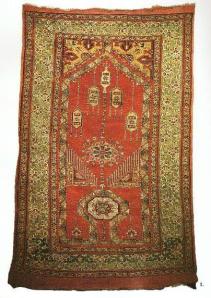Assalamu Alaikum Wa Rahmatullahi Wa Barakatuhu,
- ‘Abdullah Ibn ‘Abbas RA provided answers to the king of Persia, Khosrau when he posed the following complex queries by way of letter which he had sent to Mu’awiyah RA:
- What are the most beloved phrases to Allah?
- What are the 4 living bodies which were not formed in the womb of a mother?
- Who is that person who has entered paradise, yet prophet Mohammed SAW was forbidden from following him in his actions?
- Who was that messenger sent by Allah which was neither human, angel or Jinn?
- What is that thing that will speak on the Day of Jugement which is neither made of flesh nor blood?
- What is that thing that that breaths yet it is not of blood and flesh?
- What is that living thing that came back to life when it was struck with an organ of another living thing?
- What was that object that strode and swallowed which was neither made of flesh nor blood?
- What is that thing which can be forbidden (haram) even if you carry out its performance or even if you don’t carry out its performance?
- What is that place which does not have a Qiblah?
- Which gravesite journeyed with its occupant?
- What is meant by “Majrah” and “Qaws Quzah”? ( تاريخ دمشق لابن عساكر Vol 12 pg. 315-319)
- The most beloved phrases in the court of Allah are:
- لا إله إلا الله ، سبحان الله ، الحمد ، الله أكبر ، لا حول ولا قوة إلا بالله.
- The 4 living bodies which were not formed in the womb of a mother were:
- Adam AS
- Hawa RA
- The camel of Prophet Saleh AS which was created from the rock of a mountain
- The ram of Prophet Ibrahim AS which was sent as a ransom from heaven for Prophet Ismail AS.
- There is a person who has entered paradise however prophet Mohammed SAW was forbidden from following him in his actions. It was prophet Yunus AS. Allah says:
- “And be not like the Man of the Fish, he cried out while he was in anguish.” وَلا تَكُنْ كَصَاحِبِ الْحُوتِ إِذْ نَادَى وَهُوَ مَكْظُومٌ
- The grave site of Prophet Yunus Ibn Mattaa AS while he was in the stomach of the fish was the only grave that journeyed with its occupant.
- “Majrah” is the door of the skies and “Qaws Quzah” is that portion of earth which did not get submerged underwater in the time of Pophet Nuh AS. The inhabitatns of that region did not drown also.
- The only messenger that Allah sent which was neither a human, angel nor Jinn was the crow that scratched the earth to show the son of Adam AS how he should conceal the corpse of his dead brother.
- The only thing that will speak on the Day of Jugement which is neither made of flesh nor blood is Jahannam (Hell). Allah says: (Remind them of) the Day when We will say to Jahannam (Hell), “Are you filled up?” and it will say, “Are there some more?”
- The only thing that breaths yet it is not of blood and flesh is the morning as Allah says in the Qur’an: “and the morning when it starts breathing”
- The only living thing that came back to life when it was striked with an organ of another living thing (the cow) was the man who was murdered in the time of Musa AS. As Allah states in the Qur’an: “And when you killed a man, and started putting the blame for it on one another, while Allah was to bring forth what you were holding back. So, We said, “Strike him with a part of it.” This is how Allah revives the dead; and He shows you His signs, so that you may understand.”
- The only thing that walked and swallowed which was neither made of flesh nor blood was the staff of Musa AS. As Allah states: We revealed to Mūsā, “Throw your staff.” Then of a sudden, it began to swallow all that they had concocted. [7:117]
- The only thing which can be forbidden (haram) even if you carry out its performance or don’t carry out its performance is prayer (Salah). If you do not offer salah this is forbidden. And if you perform prayer (Salah) while intoxicated, this is also forbidden.
- The only place that does not have a Qiblah is the Ka’bah itself. ( تاريخ دمشق لابن عساكر Vol 12 pg. 315-319)


